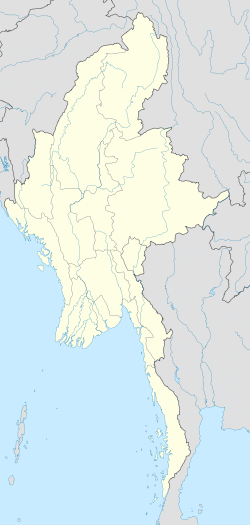Kin-U ခင်ဦး Khin-U | |
|---|---|
Town | |
| Coordinates: 22°46′08″N95°37′18″E / 22.76889°N 95.62167°E | |
| Country | |
| Division | |
| District | Shwebo |
| Township | Khin-U Township |
| Population | |
| • Ethnicities | Burmans |
| • Religions | Theravada Buddhism |
| Time zone | UTC6:30 (MST) |
Kin-U is a town in the Sagaing Division in Myanmar. It is the administrative seat of Khin-U Township.


